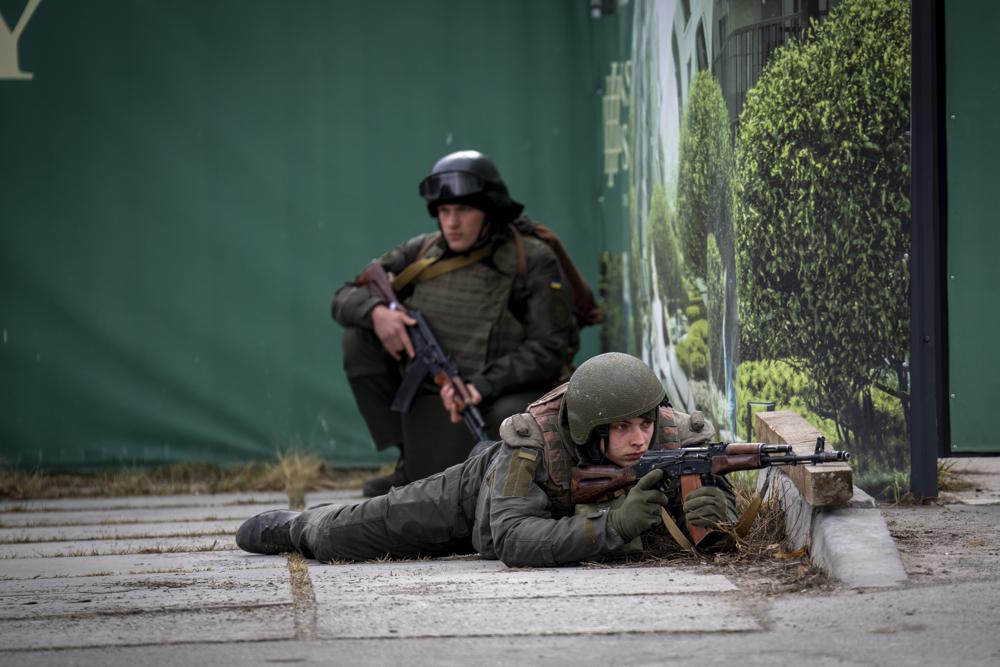BBC
Russia’s Lavrov (R) in talks with Ukraine’s Kuleba – but there was no immediate breakthrough
A first round of talks between the foreign ministers of Russia and Ukraine has failed to yield progress on a ceasefire, Ukraine says.
Speaking after the meeting in Turkey, Dmytro Kuleba said that the demands his Russian counterpart Sergei Lavrov had made amounted to a surrender.
Mr Lavrov meanwhile said that his country’s military operation was going to plan.
The West was behaving dangerously by supplying weapons to Ukraine, he said.
The talks come a day after Ukraine accused Russia of bombing a children’s hospital in the city of Mariupol, calling it a “war crime”. Officials say three people including a child died in the attack. Russia said it would seek answers from its military about what had happened.
The worst humanitarian situation was in Mariupol, Mr Kuleba said. But Russia had not committed to establishing a humanitarian corridor there, he said.
It had not been easy to listen to Mr Lavrov during the meeting, Mr Kuleba said, and his counterpart’s broad thrust had been that Russia would continue attacking until Ukraine met Moscow’s demands.
But Ukraine would not surrender, the foreign minister said, even though it was ready to seek balanced diplomatic solutions and continue meeting.
Mr Lavrov said that Moscow was waiting for a response to its list of demands from Kyiv.
Russia insists that Ukraine abandons its stated plans to join the Nato military alliance, and becomes a neutral-status state. It also says Kyiv must accept Moscow’s jurisdiction over Crimea – the southern Ukrainian peninsula annexed by Russia in 2014 – and must recognise two self-proclaimed rebel-held regions of Luhansk and Donetsk as independent.
The Russian foreign minister also alleged that Ukraine had been planning an attack on the two regions of eastern Ukraine.
Outcry at hospital bombing
UN Secretary General António Guterres described the attack as “horrific” and the US accused Russia of a “barbaric use of military force to go after innocent civilians”.
Mariupol – where about 400,000 people live – has been surrounded by Russian forces for several days, and repeated attempts at a ceasefire to allow civilians to leave have broken down.
“The whole city remains without electricity, water, food, whatever and people are dying because of dehydration,” Olena Stokoz of Ukraine’s Red Cross told the BBC on Wednesday.
Chemical weapons warning
Western officials – including the White House – have warned Russia could use chemical or biological weapons in Ukraine or create a “false flag” operation – a misleading operation blamed on the other side, usually used to justify a supposed counter-attack.
Moscow earlier said Ukrainian forces had transported some 80 tonnes of ammonia in the country’s north-east, without providing evidence.
The US House of Representatives voted in favour of nearly $14bn (£10.6bn) in aid for Ukraine, as well as voting to ban US imports of Russian oil and other energy products. The measures still must pass through the Senate, which is expected to vote later this week.
Meanwhile US Vice-President Kamala Harris is in Poland, a day after Washington rejected the country’s plan to transfer military jets to the US, rather than directly to Ukraine.
And in Europe, EU leaders are meeting in France’s Palace of Versailles for a two-day summit to discuss Ukraine’s possible future membership, more sanctions on Russia, and a new common defence policy.
US officials estimated that between 5,000 to 6,000 Russian troops have been killed in Ukraine since the war began on 24 February.
Ukraine says more than 12,000 Russian service personnel have died, while Russia last week acknowledged 498 fatalities – but none of the competing claims can be clearly verified.
